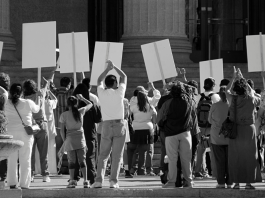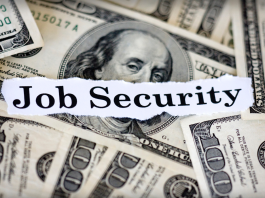The modern workplace is evolving rapidly, with an increasing focus on inclusivity, employee well-being, and fair labor practices. Nonprofit organizations play a crucial role in this transformation by advocating for workers’ rights, providing support services, and fostering innovation in the workplace. This blog, curated by the dedicated team at NonProfits.Club, highlights the top 50 nonprofit foundations committed to improving the conditions and experiences of workers across various sectors. Using a comprehensive set of criteria, NonProfits.Club has identified organizations that are making significant strides in shaping the future of work. Dive into this list to learn more about these impactful nonprofits and discover how you can support their missions or get involved in their initiatives. Join us in celebrating and promoting the invaluable contributions of these organizations.
Top 50 Nonprofit Foundations
AFL-CIO

- The American Federation of Labor and Congress of Industrial Organizations (AFL-CIO) is a federation of 56 national and international labor unions that collectively represent over 12 million workers. Established in 1955, AFL-CIO advocates for workers’ rights across diverse industries. The organization works to improve wages, benefits, and working conditions through collective bargaining and legislative advocacy. AFL-CIO also focuses on economic policy, aiming to create an economy that works for all. Their initiatives include campaigns for fair trade, healthcare reform, and retirement security. They also provide resources for workers to navigate workplace issues and advocate for their rights.
National Employment Law Project (NELP)

- Founded in 1969, the National Employment Law Project (NELP) is a research and advocacy organization dedicated to improving employment conditions for low-wage and unemployed workers. NELP conducts research on employment trends, labor policies, and economic issues affecting workers. They advocate for policies that promote fair wages, safe workplaces, and economic security. NELP has been instrumental in campaigns to raise the minimum wage, expand unemployment insurance, and protect workers’ rights to organize. They work closely with policymakers, labor organizations, and community groups to advance their mission of economic justice for all workers.
Economic Policy Institute (EPI)

- The Economic Policy Institute (EPI) was established in 1986 with the goal of providing high-quality economic research and analysis to promote policies that improve the living standards of working people. EPI’s research covers a wide range of topics, including labor markets, wages, income inequality, and economic policy. The organization advocates for policies that ensure fair pay, safe working conditions, and economic security for all workers. EPI’s work is widely cited by policymakers, journalists, and academics, making it a leading voice in the debate on economic and labor issues in the United States.
Worker Rights Consortium (WRC)
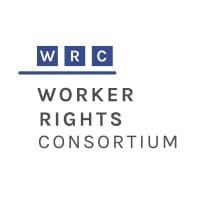
- The Worker Rights Consortium (WRC) is an independent labor rights monitoring organization that investigates working conditions in factories around the world. Established in 2000, WRC focuses on ensuring that workers producing goods for major brands and universities are treated fairly. The organization conducts thorough inspections and reports on labor practices, advocating for compliance with international labor standards. WRC works closely with labor unions, non-governmental organizations, and academic institutions to promote transparency and accountability in global supply chains. Their efforts have led to significant improvements in wages, working conditions, and labor rights for thousands of workers.
Jobs With Justice
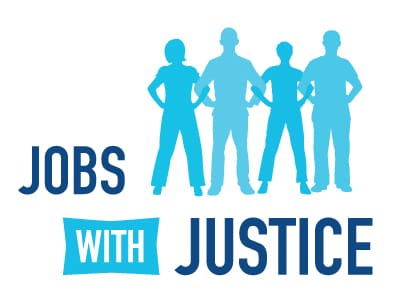
- Jobs With Justice is a national network of labor, community, student, and faith organizations that work together to promote workers’ rights and economic justice. Founded in 1987, Jobs With Justice organizes campaigns to support workers’ struggles for fair wages, safe workplaces, and the right to organize. The organization also focuses on broader social justice issues, such as healthcare, immigration, and racial equality. By building strong coalitions and engaging in grassroots organizing, Jobs With Justice aims to create a more equitable economy where all workers can thrive. Their campaigns have led to significant victories in improving labor standards and workers’ rights.
Center for American Progress (CAP)

- The Center for American Progress (CAP) is a progressive think tank that advocates for policies to improve the lives of all Americans. Founded in 2003, CAP focuses on a wide range of issues, including economic policy, healthcare, education, and labor rights. CAP’s research and advocacy efforts aim to create a strong and inclusive workforce, promote fair wages, and ensure that all workers have access to essential benefits and protections. The organization works closely with policymakers, labor organizations, and advocacy groups to advance progressive policies that support workers and their families.
National Domestic Workers Alliance (NDWA)

- The National Domestic Workers Alliance (NDWA) was founded in 2007 to advocate for the rights of domestic workers, including nannies, house cleaners, and caregivers. NDWA works to improve wages, working conditions, and labor protections for domestic workers, who are often excluded from traditional labor laws. The organization engages in advocacy, organizing, and public education to raise awareness about the challenges faced by domestic workers. NDWA has been instrumental in passing domestic worker bills of rights in several states, ensuring that domestic workers receive fair treatment and respect for their vital contributions to society.
United for Respect
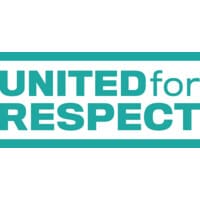
- United for Respect is a worker advocacy organization that fights for fair working conditions and respect for workers, particularly in the retail and service industries. Founded in 2011, United for Respect organizes campaigns to improve wages, benefits, and job security for workers in companies such as Walmart and Amazon. The organization also focuses on issues such as workplace safety, paid leave, and fair scheduling. By empowering workers to speak out and organize for change, United for Respect aims to create a more just and equitable economy where all workers are treated with dignity and respect.
Restaurant Opportunities Centers United (ROC United)
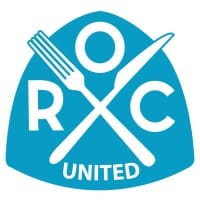
- Established in 2002, ROC United works to improve wages and working conditions for restaurant workers across the United States. The organization conducts research on labor practices in the restaurant industry and advocates for policies that support fair wages, safe workplaces, and workers’ rights to organize. ROC United also provides training and support services for restaurant workers, helping them to build skills and advance their careers. Their campaigns have led to significant improvements in wages and working conditions for thousands of restaurant workers, making ROC United a leading voice for labor justice in the food service industry.
Service Employees International Union (SEIU)
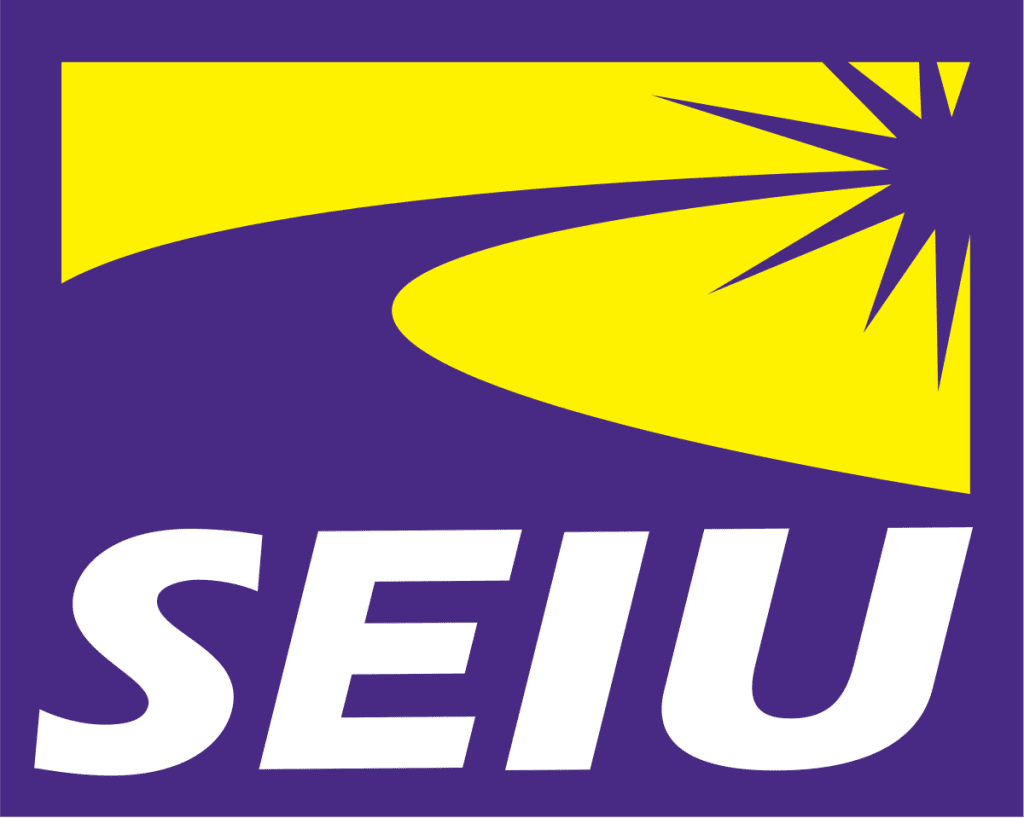
- The Service Employees International Union (SEIU) represents nearly 2 million workers in healthcare, public services, and property services. Founded in 1921, SEIU advocates for better wages, benefits, and working conditions for its members. The union also focuses on broader social justice issues, such as healthcare reform, immigration, and economic inequality. SEIU engages in collective bargaining, organizing, and political advocacy to advance the interests of workers. Their efforts have led to significant improvements in labor standards and workers’ rights, making SEIU one of the most influential labor unions in the United States.
National Council for Occupational Safety and Health (National COSH)
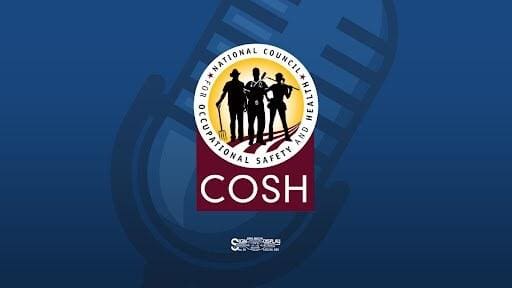
- The National Council for Occupational Safety and Health (National COSH) is a network of local and state coalitions that promote safe and healthy working conditions through training, advocacy, and research. Founded in 2003, National COSH works to prevent workplace injuries, illnesses, and fatalities by advocating for strong health and safety regulations and promoting best practices in workplace safety. The organization provides resources and training for workers, employers, and policymakers to improve workplace safety and health. Their efforts have led to significant reductions in workplace hazards and improvements in occupational health standards.
Fair Labor Association (FLA)
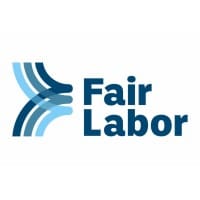
- The Fair Labor Association (FLA) is dedicated to protecting workers’ rights and improving working conditions worldwide by promoting adherence to international labor standards. Founded in 1999, FLA works with companies, universities, and civil society organizations to ensure that supply chains are free from labor abuses. The organization conducts independent assessments of factories and farms, providing transparency and accountability in labor practices. FLA also provides training and resources to help companies improve their labor standards. Their efforts have led to significant improvements in wages, working conditions, and labor rights for workers in global supply chains.
Human Rights Watch (HRW)

- Human Rights Watch (HRW) is an international organization that conducts rigorous investigations and advocacy on human rights issues, including labor rights abuses. Founded in 1978, HRW exposes violations of workers’ rights and holds corporations and governments accountable for their actions. The organization produces detailed reports on labor practices, advocates for stronger labor protections, and engages in public campaigns to raise awareness about workers’ rights issues. HRW’s work has led to significant improvements in labor standards and has helped to protect the rights of workers around the world.
Oxfam America

- Oxfam America is a global organization that fights poverty and injustice through various programs, including those aimed at improving labor rights and conditions. Founded in 1970, Oxfam America works with local partners to advocate for fair wages, safe working conditions, and economic opportunities for workers. The organization conducts research, provides training and support, and engages in advocacy to promote labor rights. Oxfam America’s efforts have led to significant improvements in wages and working conditions for workers in various industries, making it a leading advocate for labor justice and economic equality.
The Worker Institute at Cornell

- The Worker Institute at Cornell University engages in research, education, and policy development to improve labor relations and promote workers’ rights. Established in 2010, the institute focuses on issues such as workplace safety, labor organizing, and economic justice. The Worker Institute collaborates with labor unions, advocacy organizations, and policymakers to develop innovative solutions to labor challenges. Their research and educational programs provide valuable insights and resources for workers, employers, and policymakers. The institute’s efforts have contributed to significant advancements in labor standards and workers’ rights.
National Guestworker Alliance (NGA)

- The National Guestworker Alliance (NGA) was founded in 2006 to advocate for the rights of guest workers and fight against labor trafficking and exploitation. NGA works to ensure that guest workers receive fair wages, safe working conditions, and labor protections. The organization engages in advocacy, organizing, and legal support to protect the rights of guest workers and hold employers accountable for labor abuses. NGA’s efforts have led to significant improvements in labor standards and protections for guest workers, making it a leading advocate for labor justice in the guest worker program.
Laborers’ International Union of North America (LIUNA)
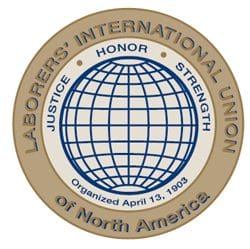
- The Laborers’ International Union of North America (LIUNA) represents over 500,000 construction workers and public service employees in the United States and Canada. Founded in 1903, LIUNA advocates for fair wages, benefits, and safe working conditions for its members. The union engages in collective bargaining, organizing, and political advocacy to advance the interests of workers. LIUNA also provides training and apprenticeship programs to help workers develop skills and advance their careers. Their efforts have led to significant improvements in labor standards and workers’ rights, making LIUNA a leading voice in the construction industry.
Coalition of Immokalee Workers (CIW)

- The Coalition of Immokalee Workers (CIW) is a worker-based human rights organization founded in 1993 and internationally recognized for its achievements in social responsibility, human trafficking, and gender-based violence at work. CIW’s Fair Food Program has been hailed as a model for social responsibility, ensuring that workers in the agricultural industry receive fair wages and humane working conditions. The organization engages in advocacy, organizing, and public education to promote labor rights and economic justice. Their efforts have led to significant improvements in labor standards and protections for agricultural workers.
Freedom Network USA

- Freedom Network USA is a coalition of 60 organizations that work to ensure that all survivors of human trafficking have access to justice and opportunities for a better life. Founded in 2001, Freedom Network USA provides training and technical assistance to service providers, advocates for stronger anti-trafficking policies, and raises awareness about human trafficking issues. The organization also provides legal and social services to survivors of human trafficking, helping them to rebuild their lives and achieve economic independence. Their efforts have led to significant advancements in the fight against human trafficking and support for survivors.
Global Labor Justice-International Labor Rights Forum (GLJ-ILRF)

- Global Labor Justice-International Labor Rights Forum (GLJ-ILRF) works to protect workers’ rights in the global economy, focusing on issues such as child labor, forced labor, and other labor abuses. Founded in 1986, GLJ-ILRF conducts research, advocacy, and campaigns to promote labor rights and hold corporations accountable for labor abuses. The organization collaborates with labor unions, advocacy groups, and policymakers to develop and implement strategies for improving labor standards and protections. Their efforts have led to significant improvements in labor rights and working conditions for workers in global supply chains.
No Worker Left Behind

- No Worker Left Behind is a non-profit organization dedicated to advocating for fair labor practices and creating inclusive work environments. The organization focuses on policy advocacy, community support, and providing resources to ensure every worker has access to fair and equitable working conditions. No Worker Left Behind conducts an annual virtual global conference on work and future of work topics, furthering their mission to promote workplace equity and employee well-being.
International Labour Organization (ILO)

- The International Labour Organization (ILO) is a United Nations agency founded in 1919 that sets international labor standards and promotes decent work for all women and men. The ILO brings together governments, employers, and workers to develop policies and programs that improve working conditions, promote fair wages, and ensure labor rights. The organization conducts research, provides technical assistance, and engages in advocacy to promote labor standards and social justice. The ILO’s efforts have led to significant improvements in labor conditions and protections for workers around the world.
National Day Laborer Organizing Network (NDLON)

- The National Day Laborer Organizing Network (NDLON) was founded in 2001 to improve the lives of day laborers by promoting employment standards and advocating for workers’ rights. NDLON works with local worker centers to provide support services, legal assistance, and advocacy for day laborers. The organization engages in campaigns to raise awareness about the challenges faced by day laborers and to promote fair wages and safe working conditions. NDLON’s efforts have led to significant improvements in labor standards and protections for day laborers, making it a leading advocate for low-wage workers.
Institute for Women’s Policy Research (IWPR)

- The Institute for Women’s Policy Research (IWPR) conducts research and promotes policies that improve the status of women in the workforce, including issues like pay equity and family leave. Founded in 1987, IWPR provides data-driven analysis and policy recommendations to advance gender equality in the workplace. The organization focuses on issues such as pay equity, work-family balance, and workplace discrimination. IWPR’s research and advocacy efforts have led to significant advancements in labor standards and protections for women workers, making it a leading voice in the fight for gender equality.
Solidarity Center
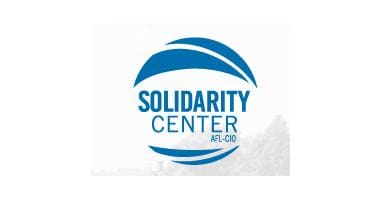
- The Solidarity Center is an international organization that works to support worker rights globally, promoting union organizing and fair labor practices. Founded in 1997, the Solidarity Center provides training, technical assistance, and advocacy to help workers build strong, democratic labor unions. The organization also engages in research and policy advocacy to promote labor rights and social justice. The Solidarity Center’s efforts have led to significant improvements in labor standards and protections for workers in various industries and regions around the world, making it a leading advocate for global labor rights.
Retail, Wholesale and Department Store Union (RWDSU)

- The Retail, Wholesale and Department Store Union (RWDSU) advocates for the rights of workers in the retail, wholesale, and service sectors. Founded in 1937, RWDSU represents workers in various industries, including retail, healthcare, and manufacturing. The union engages in collective bargaining, organizing, and advocacy to improve wages, benefits, and working conditions for its members. RWDSU also focuses on broader social justice issues, such as racial equality and immigration reform. Their efforts have led to significant advancements in labor standards and workers’ rights, making RWDSU a leading voice in the fight for economic justice.
Workers Defense Project
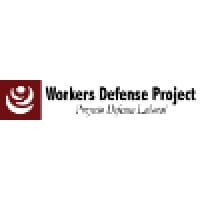
- The Workers Defense Project is a Texas-based organization founded in 2002 that empowers low-wage workers to achieve fair employment through education, organizing, and direct services. The organization provides legal assistance, advocacy, and support services to help workers fight for fair wages, safe working conditions, and labor rights. Workers Defense Project also engages in campaigns to raise awareness about the challenges faced by low-wage workers and to promote policies that support workers’ rights. Their efforts have led to significant improvements in labor standards and protections for workers in Texas, making it a leading advocate for economic justice.
Public Justice Center

- The Public Justice Center uses legal advocacy to improve the lives of people in Maryland who face injustice, focusing on workers’ rights, housing, and healthcare. Founded in 1985, the Public Justice Center provides free legal services to low-income workers, helping them to fight workplace discrimination, wage theft, and other labor abuses. The organization also engages in policy advocacy to promote fair labor standards and social justice. The Public Justice Center’s efforts have led to significant advancements in labor protections and workers’ rights, making it a leading advocate for economic justice in Maryland.
Equal Justice Center

- The Equal Justice Center is a nonprofit law firm founded in 2001 that fights for fair treatment and workplace justice for low-income working people. The organization provides free legal services to workers who have experienced wage theft, workplace discrimination, and other labor abuses. Equal Justice Center also engages in advocacy and public education to raise awareness about workers’ rights and to promote fair labor standards. Their efforts have led to significant improvements in labor protections and workers’ rights, making it a leading advocate for economic justice for low-income workers.
Workplace Fairness
- Workplace Fairness is a nonprofit organization founded in 2001 that provides information and education about workers’ rights and workplace issues, aiming to promote fair treatment in the workplace. The organization offers a comprehensive online resource for workers, employers, and policymakers, covering topics such as employment discrimination, wage and hour laws, and workplace safety. Workplace Fairness also engages in advocacy and public education to raise awareness about workers’ rights and to promote fair labor standards. Their efforts have led to significant improvements in labor protections and workers’ rights, making it a leading advocate for workplace fairness.
Farmworker Justice

- Farmworker Justice is a national organization founded in 1981 that aims to empower migrant and seasonal farmworkers to improve their living and working conditions. The organization engages in advocacy, litigation, and public education to promote fair wages, safe working conditions, and labor protections for farmworkers. Farmworker Justice also provides training and support services to help farmworkers build skills and advance their careers. Their efforts have led to significant improvements in labor standards and protections for farmworkers, making it a leading advocate for economic justice in the agricultural industry.
Interfaith Worker Justice (IWJ)
- Interfaith Worker Justice (IWJ) is a national network founded in 1996 that brings together diverse faith communities to support and advance the rights of workers. IWJ engages in advocacy, organizing, and public education to promote fair wages, safe working conditions, and labor rights. The organization works with labor unions, community organizations, and faith groups to build strong coalitions and support workers’ struggles for economic justice. IWJ’s efforts have led to significant advancements in labor standards and workers’ rights, making it a leading advocate for social justice and worker rights.
National Center for Transgender Equality (NCTE)
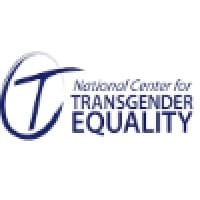
- The National Center for Transgender Equality (NCTE) is an advocacy organization founded in 2003 that works to improve the lives of transgender people, including fair treatment in the workplace. NCTE engages in policy advocacy, public education, and legal support to promote transgender equality and protect the rights of transgender workers. The organization focuses on issues such as employment discrimination, workplace safety, and access to healthcare. NCTE’s efforts have led to significant advancements in labor protections and rights for transgender workers, making it a leading advocate for transgender equality.
Restaurant Workers’ Community Foundation (RWCF)

- The Restaurant Workers’ Community Foundation (RWCF) was founded in 2018 to improve the lives of restaurant workers through grants, impact investing, and advocacy. RWCF focuses on issues such as fair wages, workplace safety, and mental health support for restaurant workers. The organization provides financial support to nonprofit organizations that advocate for workers’ rights and promote economic justice in the restaurant industry. RWCF’s efforts have led to significant improvements in labor standards and protections for restaurant workers, making it a leading advocate for social justice in the food service industry.
Asian Pacific American Labor Alliance (APALA)

- The Asian Pacific American Labor Alliance (APALA) was founded in 1992 to advance worker, immigrant, and civil rights for Asian and Pacific Islander Americans. APALA engages in advocacy, organizing, and public education to promote fair wages, safe working conditions, and labor rights for Asian and Pacific Islander workers. The organization works with labor unions, community organizations, and advocacy groups to build strong coalitions and support workers’ struggles for economic justice. APALA’s efforts have led to significant advancements in labor standards and workers’ rights, making it a leading advocate for social justice and worker rights.
International Union of Food, Agricultural, Hotel, Restaurant, Catering, Tobacco and Allied Workers’ Associations (IUF)
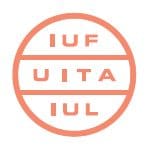
- The International Union of Food, Agricultural, Hotel, Restaurant, Catering, Tobacco and Allied Workers’ Associations (IUF) is a global federation founded in 1920 that represents workers in the food and hospitality industries. IUF advocates for fair wages, safe working conditions, and labor rights for workers in these industries. The organization engages in collective bargaining, organizing, and advocacy to improve labor standards and protections for its members. IUF’s efforts have led to significant advancements in labor rights and working conditions for workers in the food and hospitality industries, making it a leading advocate for global labor justice.
Young Workers United
- Young Workers United is an organization founded in 2002 that empowers young workers to achieve economic and social justice through organizing and education. The organization focuses on issues such as fair wages, workplace safety, and workers’ rights for young workers in the retail and service industries. Young Workers United engages in advocacy, public education, and direct action to promote labor rights and economic justice. Their efforts have led to significant improvements in labor standards and protections for young workers, making it a leading advocate for social justice and worker rights.
United Food and Commercial Workers International Union (UFCW)
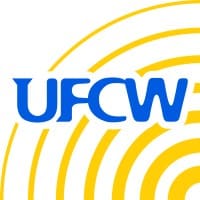
- The United Food and Commercial Workers International Union (UFCW) represents workers in the food industry, advocating for fair wages and safe working conditions. Founded in 1979, UFCW engages in collective bargaining, organizing, and advocacy to advance the interests of its members. The union also focuses on broader social justice issues, such as healthcare, immigration, and economic inequality. UFCW’s efforts have led to significant improvements in labor standards and workers’ rights, making it a leading voice in the fight for economic justice in the food industry.
Warehouse Worker Resource Center
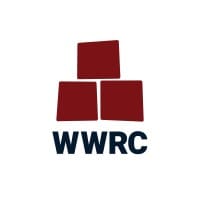
- The Warehouse Worker Resource Center is a nonprofit organization founded in 2011 that supports warehouse workers in Southern California, fighting for fair wages and better working conditions. The organization provides legal assistance, advocacy, and support services to help workers fight for their rights. Warehouse Worker Resource Center also engages in campaigns to raise awareness about the challenges faced by warehouse workers and to promote policies that support workers’ rights. Their efforts have led to significant improvements in labor standards and protections for warehouse workers, making it a leading advocate for economic justice in the logistics industry.
Restaurant Opportunities Center of New York (ROC-NY)
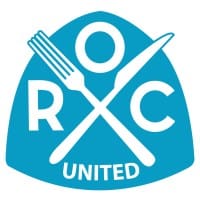
- The Restaurant Opportunities Center of New York (ROC-NY) was founded in 2002 to improve wages and working conditions for restaurant workers in New York City. The organization conducts research on labor practices in the restaurant industry and advocates for policies that support fair wages, safe workplaces, and workers’ rights. ROC-NY also provides training and support services for restaurant workers, helping them to build skills and advance their careers. Their efforts have led to significant improvements in labor standards and protections for restaurant workers in New York City, making it a leading advocate for social justice in the food service industry.
Dignity Health

- Dignity Health is a nonprofit healthcare organization founded in 1986 that advocates for a healthier workplace for healthcare workers, focusing on mental health, wellness, and safe working conditions. The organization provides training, resources, and support services to help healthcare workers maintain their health and well-being. Dignity Health also engages in advocacy and public education to promote workplace safety and mental health awareness. Their efforts have led to significant improvements in labor standards and protections for healthcare workers, making it a leading advocate for social justice and worker rights in the healthcare industry.
Justice in Motion
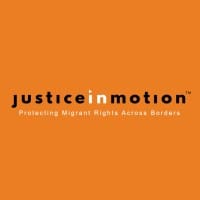
- Justice in Motion is a nonprofit organization founded in 2005 that works to protect migrant rights and ensure justice across borders through legal and advocacy support. The organization provides training, resources, and support services to help migrant workers fight for their rights and achieve economic independence. Justice in Motion also engages in advocacy and public education to raise awareness about the challenges faced by migrant workers and to promote policies that support their rights. Their efforts have led to significant improvements in labor standards and protections for migrant workers, making it a leading advocate for social justice and worker rights.
UnidosUS

- UnidosUS, formerly known as the National Council of La Raza (NCLR), is an advocacy organization founded in 1968 that works to improve the lives of Latino Americans, including workers’ rights and fair labor practices. The organization engages in advocacy, public education, and community organizing to promote economic justice, education, and healthcare for the Latino community. UnidosUS also provides training and support services to help Latino workers build skills and advance their careers. Their efforts have led to significant improvements in labor standards and protections for Latino workers, making it a leading advocate for social justice and worker rights.
Legal Aid at Work
- Legal Aid at Work is a nonprofit organization founded in 1918 that provides free legal services to low-income workers to help them fight workplace discrimination and unfair practices. The organization focuses on issues such as employment discrimination, wage theft, and workplace safety. Legal Aid at Work also engages in policy advocacy and public education to promote fair labor standards and social justice. Their efforts have led to significant improvements in labor protections and workers’ rights, making it a leading advocate for economic justice for low-income workers.
North America’s Building Trades Unions (NABTU)
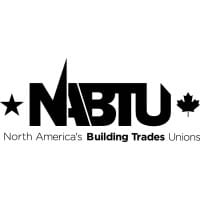
- North America’s Building Trades Unions (NABTU) represents building trade workers, advocating for fair wages, training, and safe working conditions. Founded in 1908, NABTU engages in collective bargaining, organizing, and advocacy to advance the interests of its members. The organization also focuses on broader social justice issues, such as healthcare, immigration, and economic inequality. NABTU’s efforts have led to significant improvements in labor standards and workers’ rights, making it a leading voice in the fight for economic justice in the construction industry.
National Black Worker Center Project
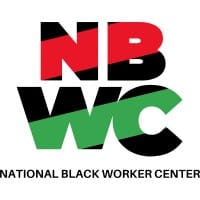
- The National Black Worker Center Project is an organization founded in 2011 that aims to improve the position of Black workers in the labor market through organizing, research, and advocacy. The organization focuses on issues such as employment discrimination, wage inequality, and workplace safety. National Black Worker Center Project engages in advocacy, public education, and direct action to promote labor rights and economic justice for Black workers. Their efforts have led to significant improvements in labor standards and protections for Black workers, making it a leading advocate for social justice and worker rights.
International Brotherhood of Teamsters

- The International Brotherhood of Teamsters, commonly known as the Teamsters Union, represents workers in various industries, advocating for their rights and better working conditions. Founded in 1903, the Teamsters Union engages in collective bargaining, organizing, and advocacy to advance the interests of its members. The union also focuses on broader social justice issues, such as healthcare, immigration, and economic inequality. The Teamsters Union’s efforts have led to significant improvements in labor standards and workers’ rights, making it a leading voice in the fight for economic justice across diverse industries.
Good Jobs First

- Good Jobs First is a nonprofit organization founded in 1998 that promotes accountability in economic development and advocates for policies that lead to good jobs and vibrant communities. The organization conducts research on corporate subsidies, economic development programs, and labor standards. Good Jobs First also engages in advocacy and public education to promote fair labor standards and economic justice. Their efforts have led to significant improvements in labor protections and workers’ rights, making it a leading advocate for economic accountability and social justice.
Street Vendor Project

- The Street Vendor Project is a nonprofit organization founded in 2001 that fights for the rights of street vendors in New York City, ensuring they have fair working conditions and legal protections. The organization provides legal assistance, advocacy, and support services to help street vendors navigate the challenges of their work. Street Vendor Project also engages in campaigns to raise awareness about the contributions of street vendors to the city’s economy and culture. Their efforts have led to significant improvements in labor standards and protections for street vendors, making it a leading advocate for economic justice and worker rights.
Brandworkers
- Brandworkers is a worker-led organization founded in 2007 that is dedicated to protecting the rights of retail and food manufacturing workers through organizing and advocacy. The organization provides training, legal assistance, and support services to help workers fight for fair wages, safe working conditions, and labor rights. Brandworkers also engages in campaigns to raise awareness about the challenges faced by workers in these industries and to promote policies that support workers’ rights. Their efforts have led to significant improvements in labor standards and protections for retail and food manufacturing workers, making it a leading advocate for social justice and worker rights.
Conclusion
These nonprofit foundations are at the forefront of efforts to improve the lives of workers, advocating for fair wages, safe working conditions, and equal opportunities. Their work is essential in creating a just and equitable workforce where all employees are valued and respected. By supporting these organizations, we can contribute to a better future for workers everywhere. Whether through donations, volunteering, or spreading awareness, everyone can play a role in advancing the mission of these impactful nonprofits.
We invite you to explore NonProfits.Club to learn more about these organizations and discover ways to get involved. Visit our platform to find detailed information on each nonprofit, opportunities for engagement, and resources to help you make a difference. Join NonProfits.Club in championing the cause of worker rights and well-being, and together, let’s build a brighter future for all.


